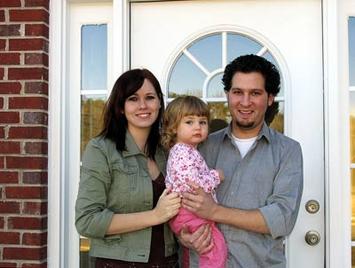
According to a study by Frank N. Magid Associates, 43 percent of Millennials describe suburbs as their “ideal place to live,” compared to just 31 percent of older generations. Even though big cities are often thought of as the place where young people prefer to live and work, only 17 percent of Millennials say they want to settle in one. This was the same percentage of members of this generation that expressed a preference for living in either rural or small town America. Nor are Millennials particularly anxious to spend their lives as renters. A full 64 percent of Millennials surveyed, said it was “very important” to have an opportunity to own their own home.
That hasn’t stopped a number of commentators from arguing that Millennials ought to prefer renting a loft apartment to buying a house and that they would be better off doing so. For example, sociologist Katherine Newman, is “hoping that the Millennial Generation doesn't set its sights on homeownership as a benchmark of economic stability, because it's going to be out of reach for so many of them that it will just be a recipe for frustration."
But survey research suggests it may be her hopes that will be dashed as the Millennial Generation matures. Eighty-four percent of 18-34 year olds who are currently renting say that they intend to buy a home even if they can’t currently afford to do so. As Neal Coleman, a married Millennial in his mid-twenties, put it, "You're freer when you own your own home, your own land. You're not beholden to a renter's contract, or lease. My feeling is that homeownership is an investment in being able to control your surroundings, to build a life for you and your family."
Glenn E. Crenlin from the Runstad Center for Real Estate Studies at the University of Washington believes that “what we're looking at in terms of the Millennial Generation is likely only a delay in homeownership of three to five years, not a long-term trend away from homeownership itself." He cites census data from the American Community Survey that shows a significant increase in homeownership among Millennials as compared to Baby Boomers when they were at the same age that Millennials are now. “While 900,000 households in the Millennial Generation [now] own their own home, only 500,000 Baby Boomer households owned their own homes at the same point in their lives.”
This data suggests the key to a resounding revival of America’s housing market may be the availability of affordable homes in neighborhoods with amenities that would appeal to Millennials and their young families. As always, safe streets and good schools are key components of such an environment. But so too are short commutes to work and nearby shops featuring the local products that appeal to younger customers.
Such neighborhoods already exist in many close-in suburbs whose housing stock is in need of some renovation, or “gentrification,” from energetic owners committed to improving their local community. These attributes describe Millennials precisely. Their willingness to invest sweat equity in rehabilitating their first home should be rewarded in the financing process either by counting its value toward a down payment or using it to wipe out some of the outstanding student debt with which many of the members of this generation are burdened. Alternatively, homes could be offered to Millennials as rentals with an option to buy and with the cost of any renovations performed by the renter deducted from the down payment required to make the conversion from rental to ownership.
Recently, National Association of Realtors President Moe Veissi announced that "Realtors are committed to ensuring that the dream of homeownership can become a reality for generations of Americans to come." To start making that dream come true for Millennials, realtors and those who finance home purchases need to create innovative new offerings tailored to the needs and wants of Millennials. Policies and programs that will enable America’s most populous generation to own a piece of the American Dream offer the best hope for igniting the home construction boom critical to boosting country’s still sagging economy.
Morley Winograd and Michael D. Hais are co-authors of the newly published Millennial Momentum: How a New Generation is Remaking America and Millennial Makeover: MySpace, YouTube, and the Future of American Politics and fellows of NDN and the New Policy Institute. Full disclosure: Michael D. Hais retired in 2006 as Vice-President of Entertainment Research from Frank N. Magid Associates after a 22 year career with Magid and continues to do occasional work for the firm.
No comments:
Post a Comment